Thomas Mann Quotes


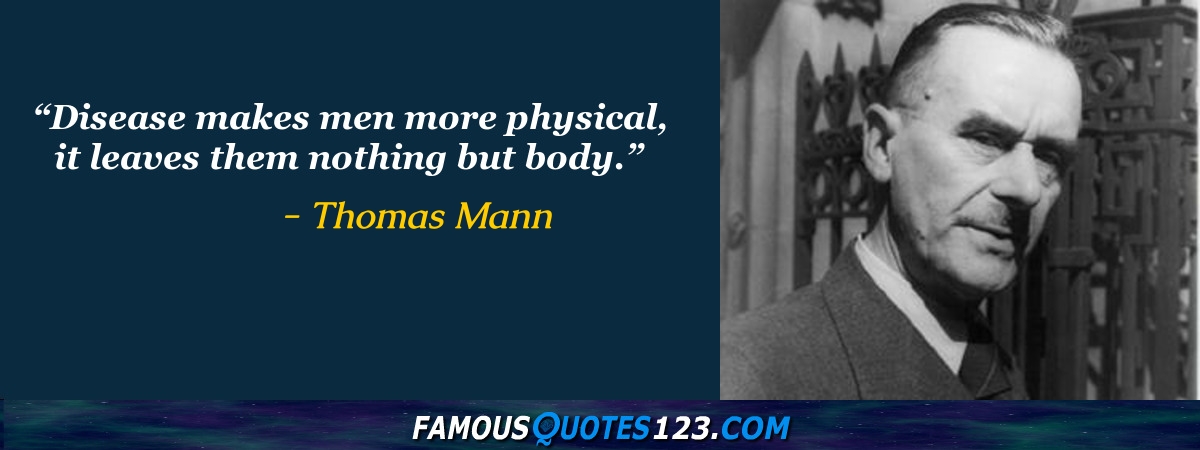
Disease makes men more physical, it leaves them nothing but body.
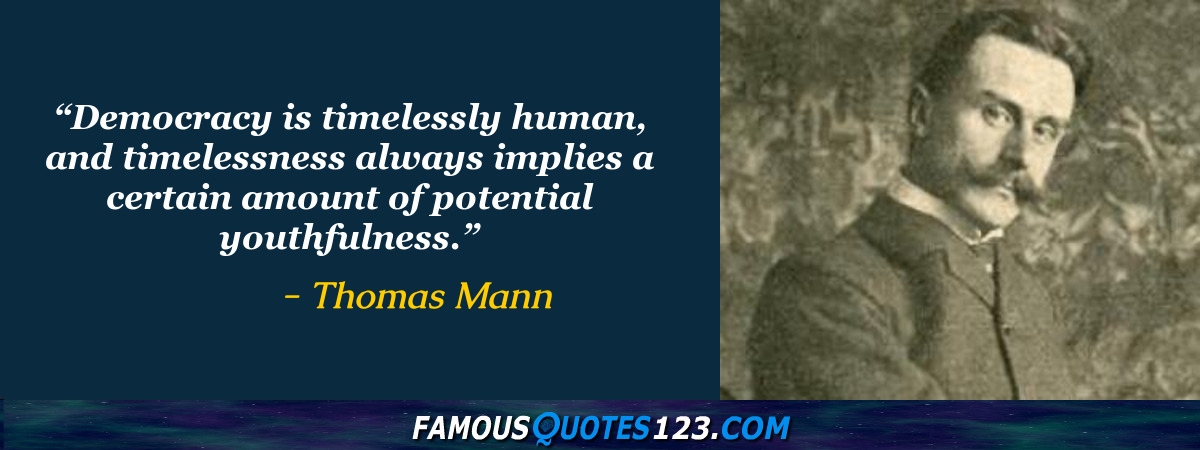
Democracy is timelessly human, and timelessness always implies a certain amount of potential youthfulness.
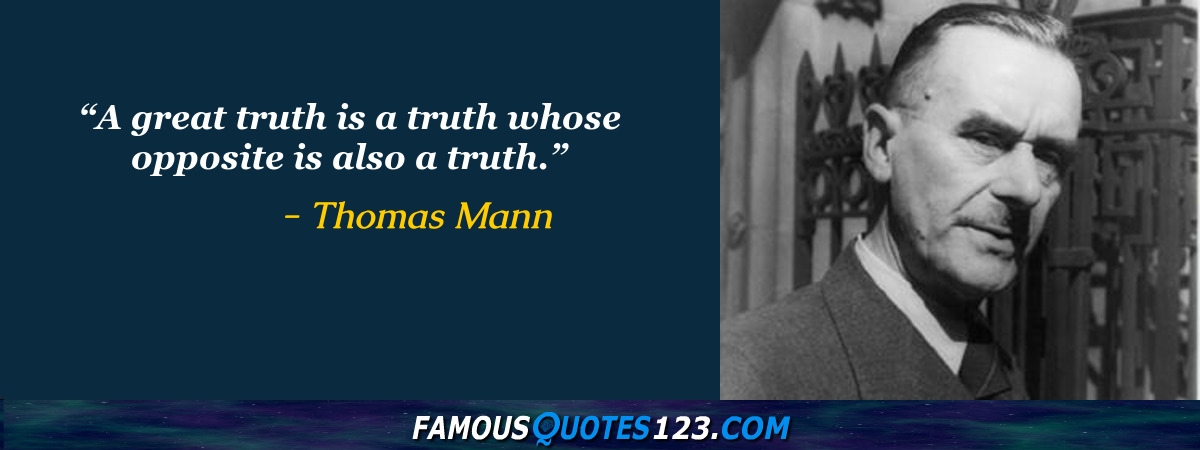
A great truth is a truth whose opposite is also a truth.
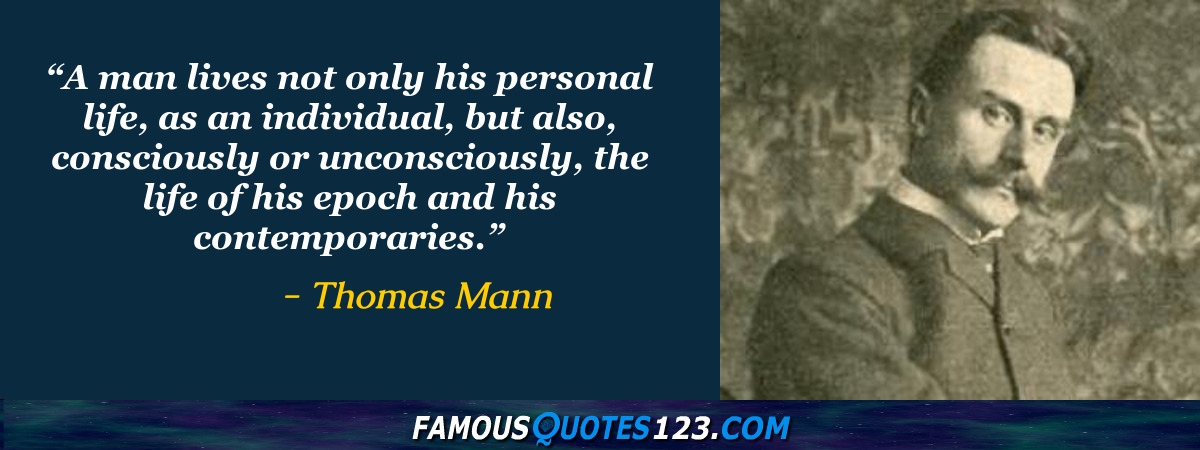
A man lives not only his personal life, as an individual, but also, consciously or unconsciously, the life of his epoch and his contemporaries.

A man's dying is more the survivors' affair than his own.
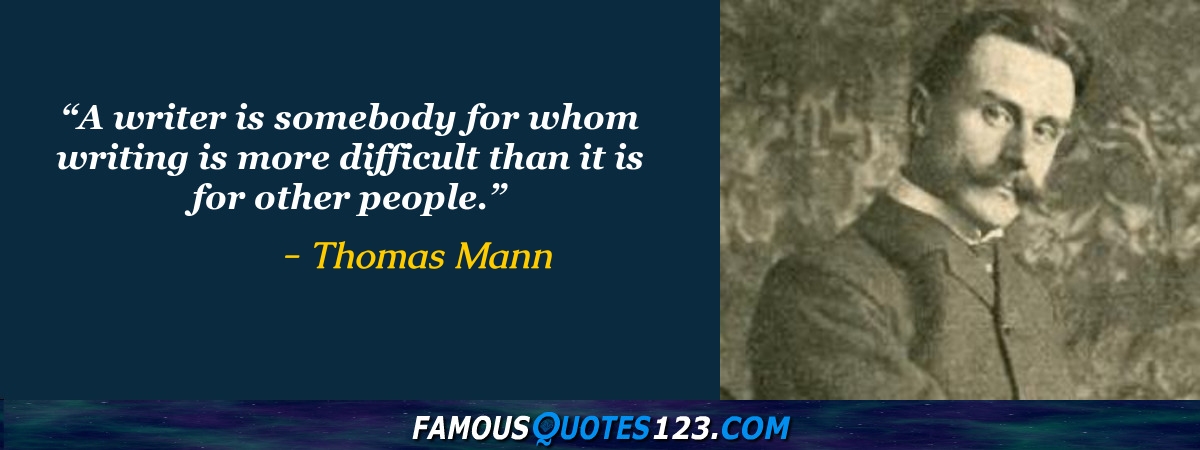
A writer is somebody for whom writing is more difficult than it is for other people.
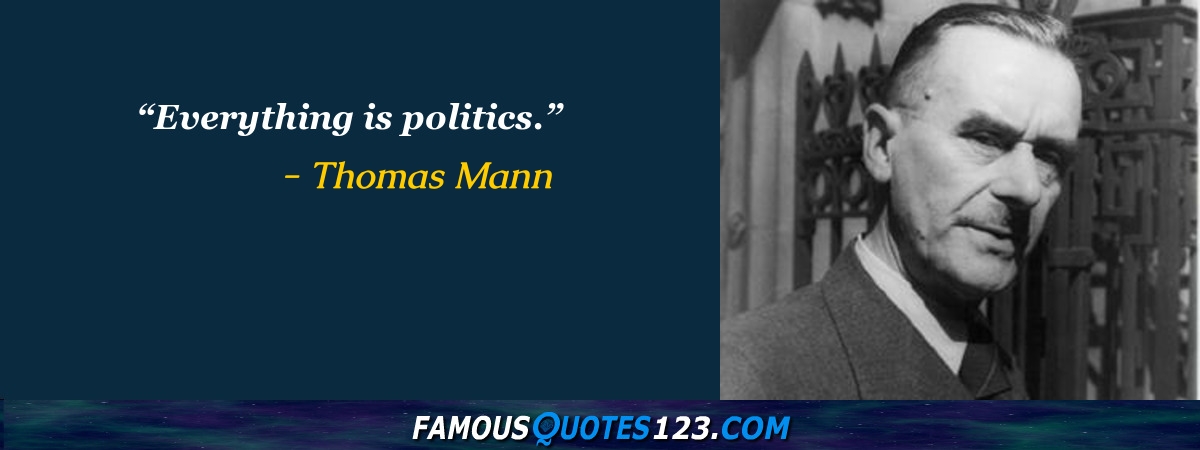
Everything is politics.
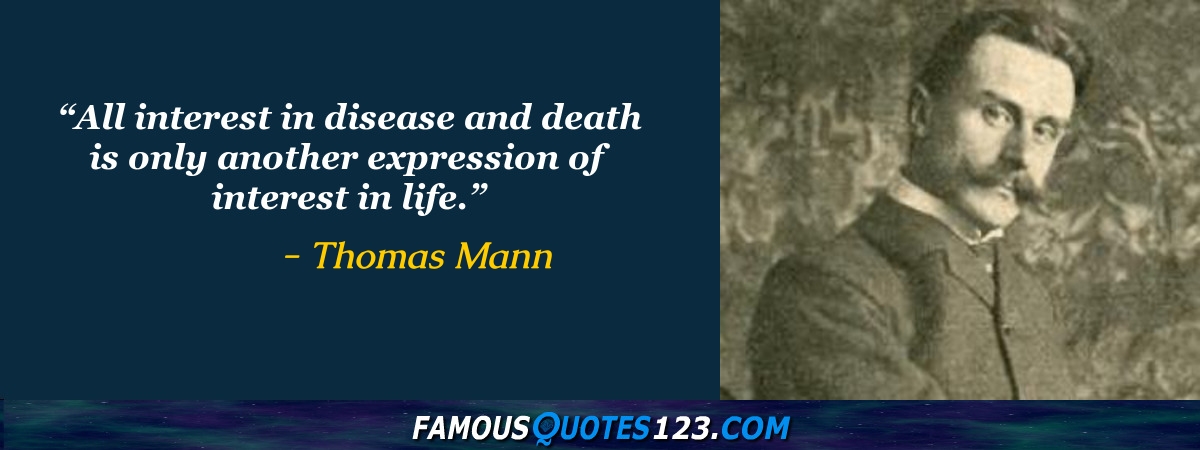
All interest in disease and death is only another expression of interest in life.
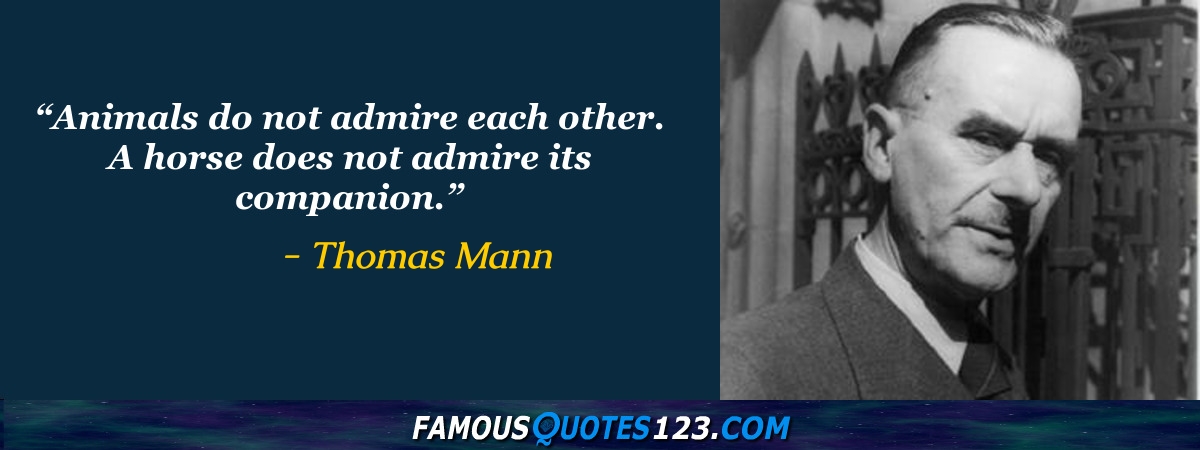
Animals do not admire each other. A horse does not admire its companion.
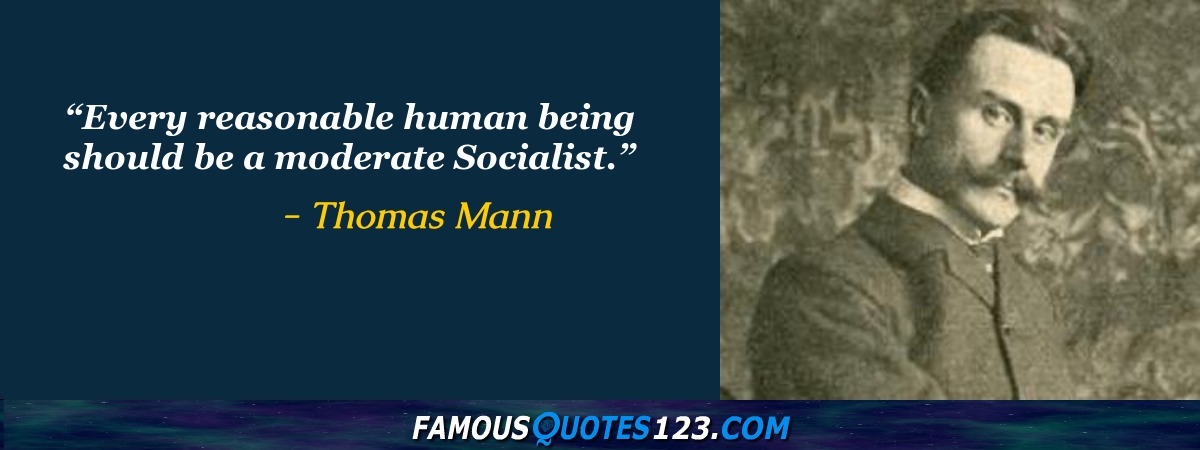
Every reasonable human being should be a moderate Socialist.
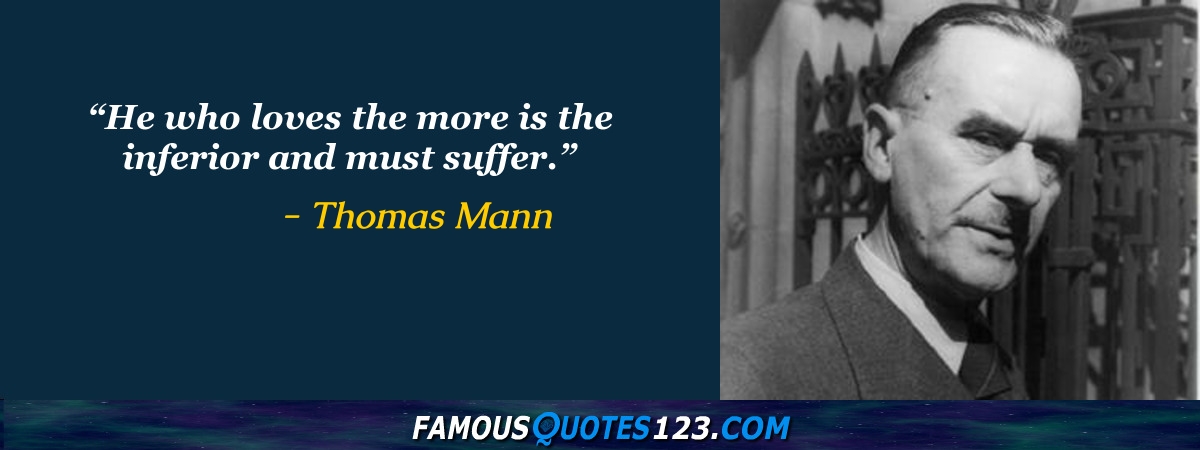
He who loves the more is the inferior and must suffer.
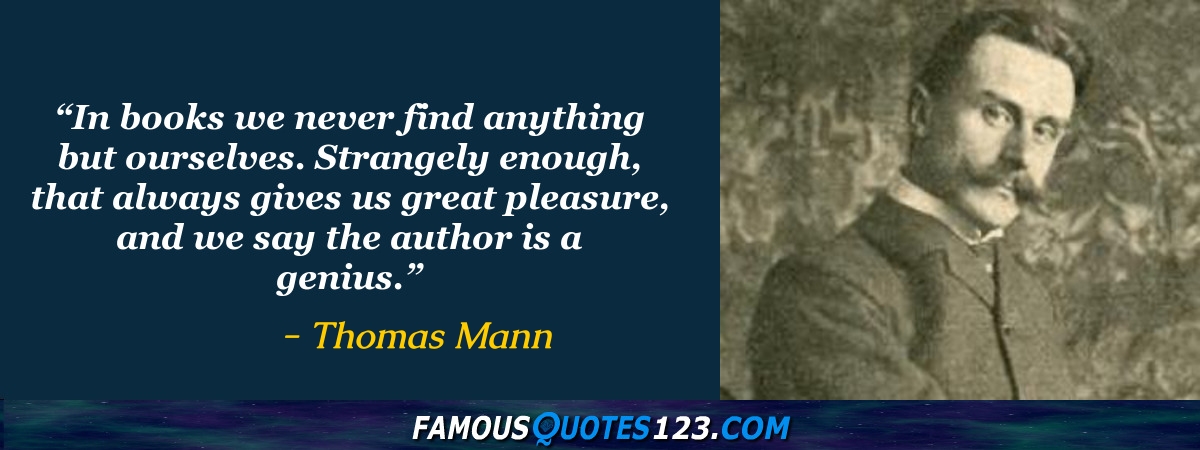
In books we never find anything but ourselves. Strangely enough, that always gives us great pleasure, and we say the author is a genius.
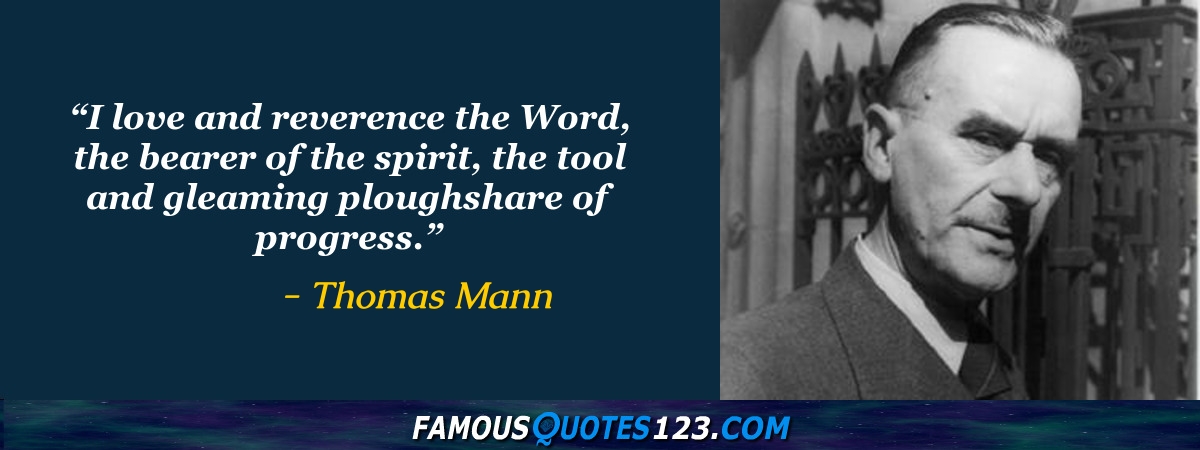
I love and reverence the Word, the bearer of the spirit, the tool and gleaming ploughshare of progress.

It is love, not reason, that is stronger than death.
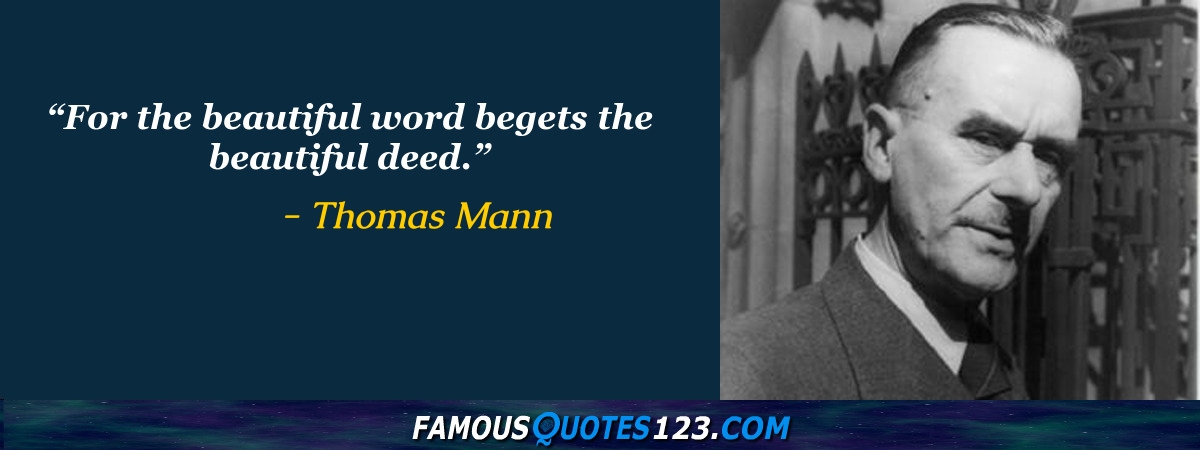
For the beautiful word begets the beautiful deed.
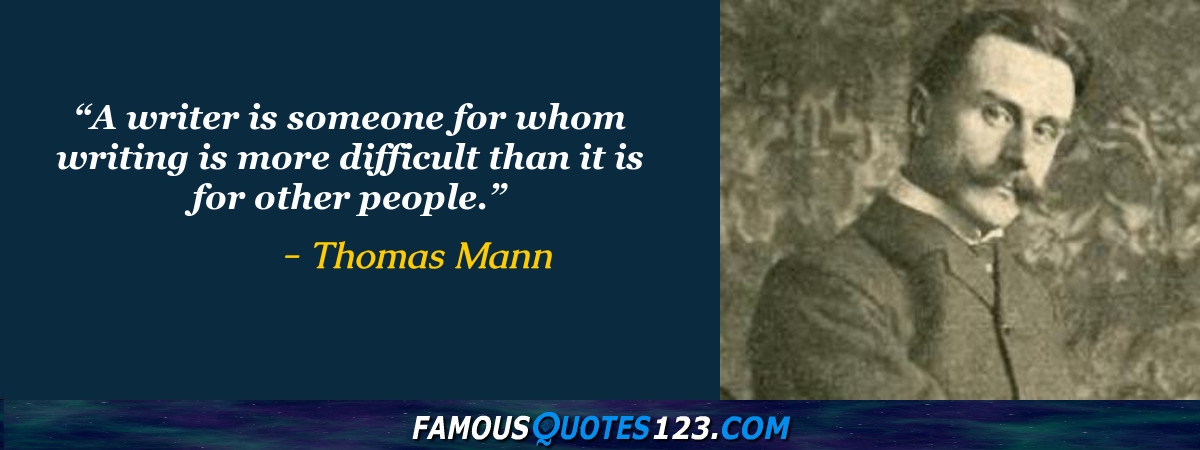
A writer is someone for whom writing is more difficult than it is for other people.
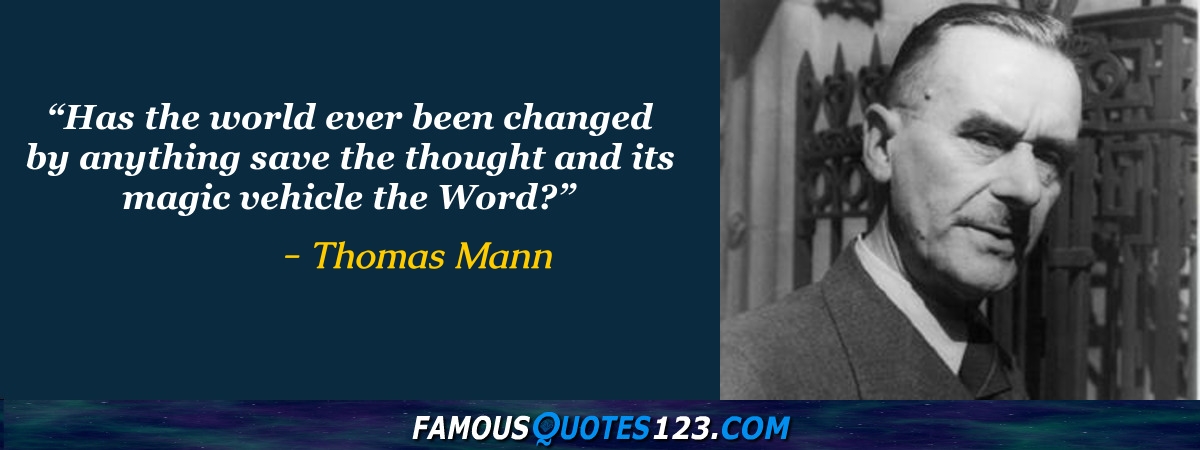
Has the world ever been changed by anything save the thought and its magic vehicle the Word?
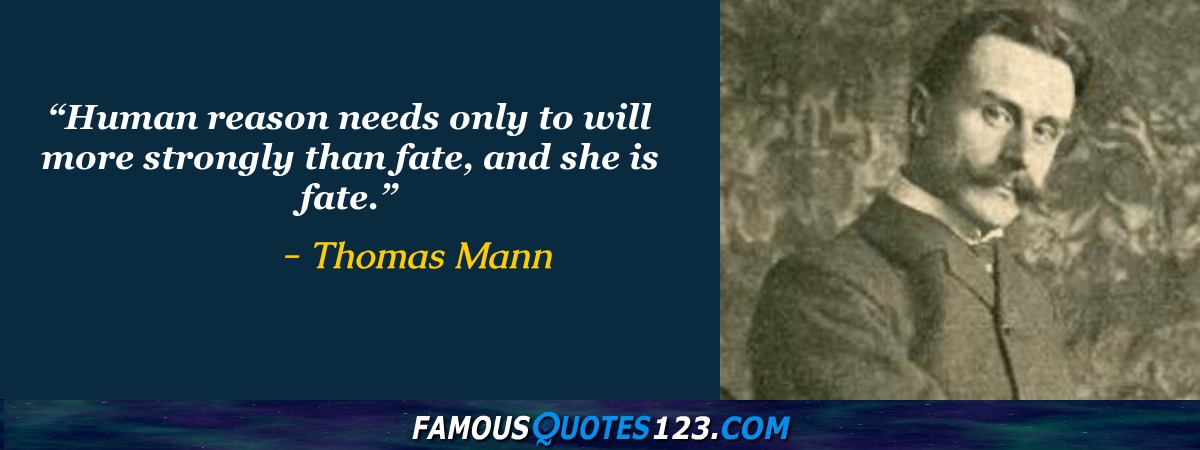
Human reason needs only to will more strongly than fate, and she is fate.
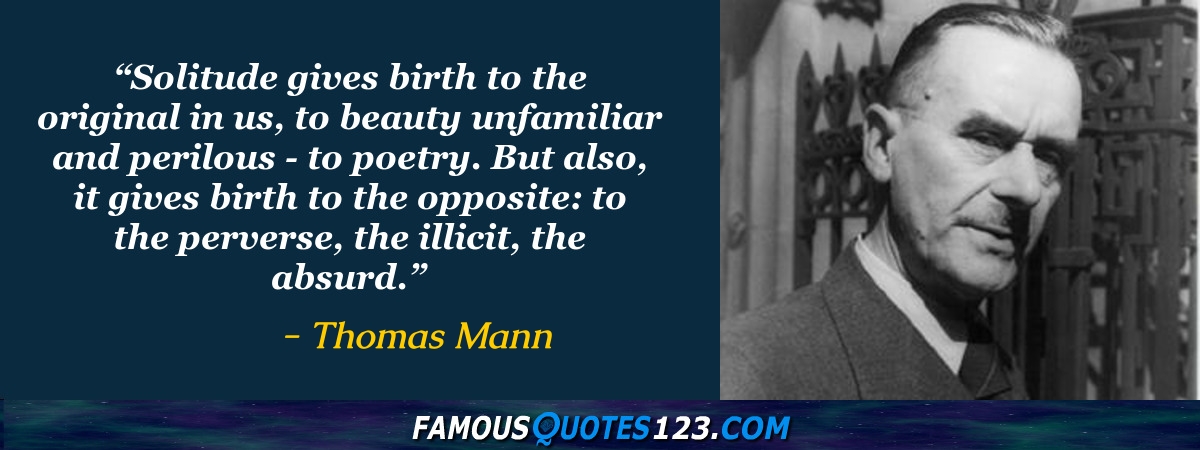
Solitude gives birth to the original in us, to beauty unfamiliar and perilous - to poetry. But also, it gives birth to the opposite: to the perverse, the illicit, the absurd.
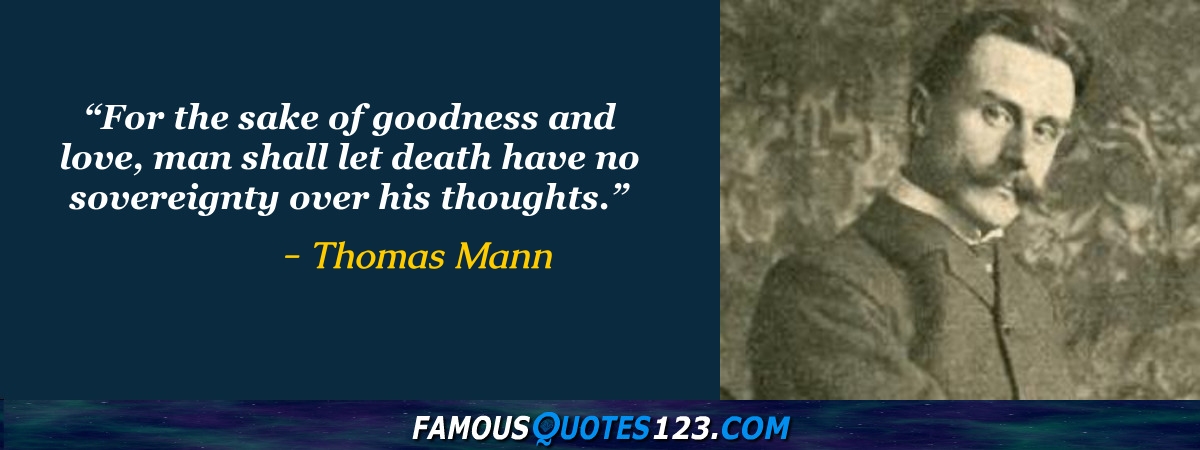
For the sake of goodness and love, man shall let death have no sovereignty over his thoughts.
A solitary, unused to speaking of what he sees and feels, has mental experiences which are at once more intense and less articulate than those of a gregarious man. They are sluggish, yet more wayward, and never without a melancholy tinge. Sights and impressions which others brush aside with a glance, a light comment, a smile, occupy him more than their due; they sink silently in, they take on meaning, they become experience, emotion, adventure. Solitude gives birth to the original in us, to beauty unfamiliar and perilous - to poetry. But also, it gives birth to the opposite: to the perverse, the illicit, the absurd.

War is only a cowardly escape from the problems of peace.
Nothing is more curious and awkward than the relationship of two people who only know each other with their eyes — who meet and observe each other daily, even hourly and who keep up the impression of disinterest either because of morals or because of a mental abnormality. Between them there is listlessness and pent-up curiosity, the hysteria of an unsatisfied, unnaturally suppressed need for communion and also a kind of tense respect. Because man loves and honors man as long as he is not able to judge him, and desire is a product of lacking knowledge.
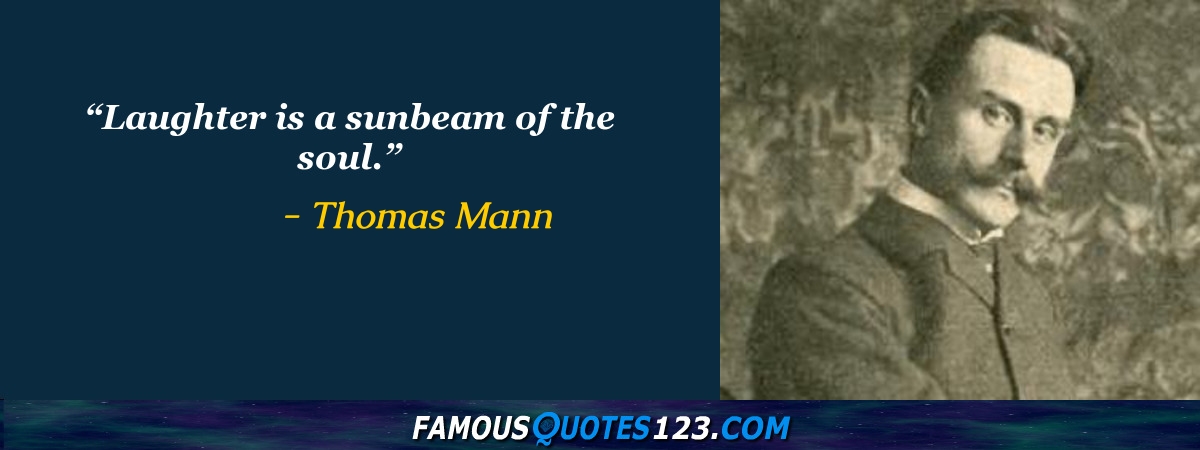
Laughter is a sunbeam of the soul.

There are so many different kinds of stupidity, and cleverness is one of the worst.
This was love at first sight, love everlasting: a feeling unknown, unhoped for, unexpected--in so far as it could be a matter of conscious awareness; it took entire possession of him, and he understood, with joyous amazement, that this was for life.

Solitude produces originality, bold and astonishing beauty, poetry. But solitude also produces perverseness, the disproportianate, the absurd and the forbidden.

Tolerance becomes a crime when applied to evil.
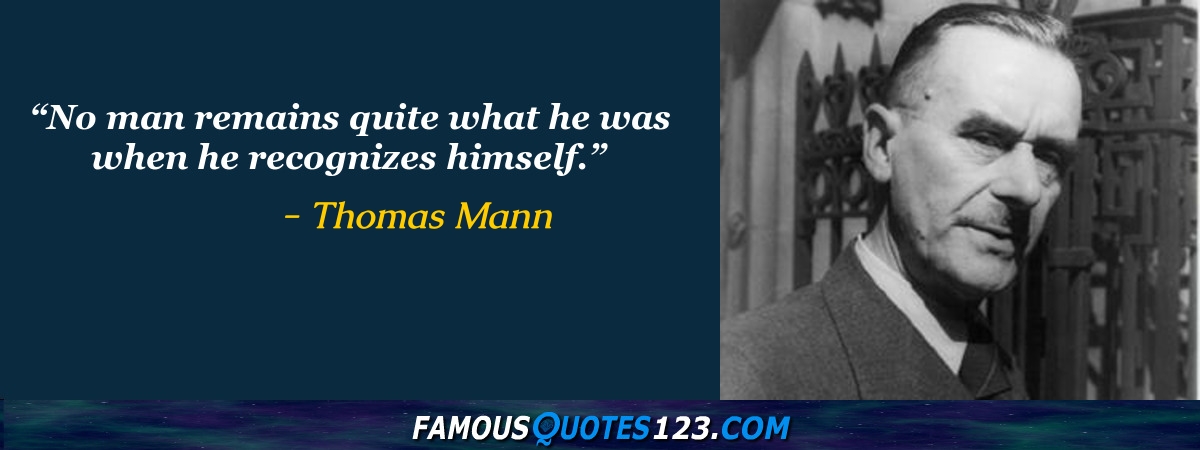
No man remains quite what he was when he recognizes himself.
Nothing is stranger or more ticklish than a relationship between people who know each other only by sight, who meet and observe each other daily - no hourly - and are nevertheless compelled to keep up the pose of an indifferent stranger, neither greeting nor addressing each other, whether out of etiquette or their own whim.

I know I am talking nonsense, but I'd rather go rambling on, and partly expressing something I find it difficult to express, than to keep on transmitting faultless platitudes.
It is remarkable how a man cannot summarize his thoughts in even the most general sort of way without betraying himself completely, without putting his whole self into it, quite unawares, presenting as if in allegory the basic themes and problems of his life.

He probably was mediocre after all, though in a very honorable sense of that word.

Art is the funnel, as it were, through which spirit is poured into life.